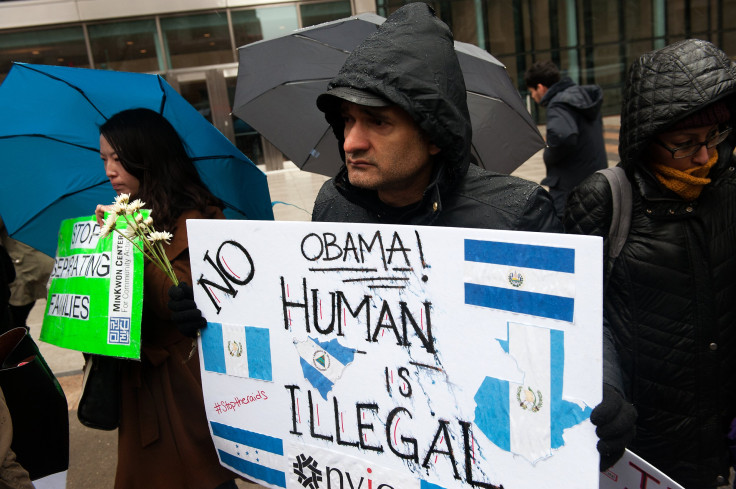Immigrants In Prison: Obama Administration Houses Undocumented Detainees In Private Facilities Known For Questionable Deaths

The U.S. Immigration and Customs Enforcement (ICE) will use private prisons to house immigrant detainees, a little over two months after the Justice Department said it will eventually end its use of facilities owned by for-profit private companies.
As early as this week, the immigration enforcement agency will begin shifting immigrant detainees to the Cibola County Correctional Center, New Mexico, which has a history of questionable deaths and poor medical care. The prison is owned by the Corrections Corporation of America, one of the largest prison firms in the country.
The facility has been operational since 1998 and was one of the several prisons that were to cease functioning after the Justice Department said in August it is terminating contracts with private operators at 13 prisons.
“It is very disturbing,” Vicki Gaubeca, director of the American Civil Liberties Union’s Regional Center for Border Rights, reportedly said. “Particularly when this facility is notorious for dangerous practices. They basically put profits before people.”
The ICE is drawing up a new deal with the Corrections Corporation of America for almost 1,116 beds at the New Mexico prison. The agency is also working with the Tennessee-based firm to chalk out a deal for a Texas facility that has nearly 2,400 beds, and is looking into a prison in Youngstown, Ohio, also owned by the same company, the Washington Post reported.
The Justice Department’s decision to terminate contracts with private prisons stemmed from a damning report by its Office of Inspector General which found that rates of assault were much higher in private facilities, with about eight times as many contraband cellphones confiscated every year on an average. The report analyzed 14 private and public prisons from 2011 to 2014.
The report also mentioned the May 2012 riot at the Adams County Correctional Center in Mississippi which left 20 people injured and one officer dead. According to the report, the riot took place because about 250 inmates were upset over the poor food and medical care at the facility.
“We found that in a majority of the categories we examined, contract prisons incurred more safety and security incidents per capita than comparable BOP [Federal Bureau of Prisons] institutions,” the report concluded.
When the department decided to end its contracts, the Cibola County Correctional Center was the first one to be scheduled to close this month, largely due to concerns over substandard medical care.
Spokeswoman for the ICE Jennifer D. Elzea said the agency was “committed to providing a safe and humane environment for all those in its custody,” adding that the agency used a lot of contractors and other arrangements “to meet the agency’s detention needs while achieving the highest possible cost savings for the taxpayer.”
Meanwhile, local authorities have been pushing for the Cibola County Correctional Center to remain open as it would save nearly 350 jobs, T. Walter Jaramillo, chair of the Cibola County Board of Commissioners, told the Washington Post. “It’s employment,” Jaramillo said. “It’s all about the economics in the community.”
© Copyright IBTimes 2024. All rights reserved.






















